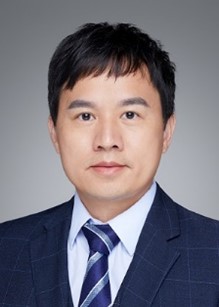Keynote Speakers
Keynote Ⅰ

Prof. Qing Shi, Beijing Institute of Technology, China
Title: Recent Advances in the Design and Motion Control of a Small-Sized Robotic Rat
Abstract: Rats have been inspiring biomimetic robotics research because of their small body frame, variety of movements, strong adaptability, and complex social behaviors. This presentation introduces a rat-inspired robot developed by our team from the perspectives of biomimetic modeling, optimization and evaluation, the micro biomimetic sensing unit and robot-animal interaction. Mainly three advanced technical aspects will be covered: 1) biomimetic configuration mapping and optimization based on extracting key movement joints (KMJs); 2) multi-dimensional sensing based on miniature binocular vision and miniature tentacles; 3) robot-rat interaction modeling by learning rat-like behavior. Researches on intelligent, rat-inspired robots have promising prospects for applications in biomedicine, pipeline surveying, disaster rescue, etc. This presentation summarizes our results in extending bionics from the morphological and functional level to the interactional level and discusses how we can make robots more lifelike.
Biography: Qing Shi received the Ph.D. degree from Waseda University, Japan, in 2012. He had been a Research Associate at GCOE Global Robot Academia of Waseda University from 2009 to 2013. He is currently a Professor and the Vice Director of Intelligent Robotics Institute, Beijing Institute of Technology. His research interests are focused on bio-inspired robotics, biomimetics, mechanism design, visual tracking, etc. Dr. Shi won the National Natural Science Funds for Excellent Young Scholar and Beijing Nova Program, and he has published more than 40 papers in top journals like IEEE Trans. Robotics, and has received Best Journal Paper Award of Advanced Robotics (2015), and Best Paper Award in Automation of ICRA 2021. He is currently the Associate Editor of IEEE Transactions on Robotics, IEEE Transactions on Medical Robotics and Bionics, and Cyborg and Bionic Systems. Additionally, he served as Associate Editor of IROS 2016, ICRA 2017 and ICRA 2018, committee chairs (e.g., Program Co-Chair) for 10 international conferences like IEEE CBS 2022, IEEE ARSO 2019, HUMANOIDS 2018.
Keynote Ⅱ

Prof. Haoyao Chen, Harbin Institute of Technology Shenzhen, China
Title: Key Technologies of Field Robots for Urban Disaster Rescue
Abstract:Urban disasters cause huge threats and damage to people's lives and properties. Autonomous mobile robots with rescue equipment can be the most effective means to solve urgent rescue needs and ensure people's lives and safety. However, the autonomous capability of mobile robots is still challenging due to a series of complex factors, e.g., changing illumination, moving objects, rough terrain, and information instability. Stable state estimation, fast path planning, and accurate motion control are three of the most important key technologies to realize the autonomous operation of rescue robots. This talk will focus on the mentioned three technologies and introduce nROS-Lab's recent results on the ground and aerial rescue robots. The state estimation algorithm based on cross-modality sensors will be presented, and the robust perception with active strategy in the complex illumination environments will also be introduced. In addition, the motion planning for active and robust environmental perception will be presented. Finally, a to-be-open-sourced physical engine simulation system for efficiently verifying the algorithms of rescue robots will be introduced.
Biography: Haoyao Chen received the Bachelor’s degree in Mechatronics and Automation from the University of Science and Technology of China in 2004, and the PhD degree in the Robotics from both the University of Science and Technology of China and the City University of Hong Kong in 2009. He was working as a visiting scholar in the Autonomous Systems Lab in ETHz, Switzerland. And he is currently a Professor in Harbin Institute of Technology Shenzhen and the State Key Laboratory of Robotics and System of China. He has hosted or co-hosted more than 20 important projects on mobile robots and micro aerial robots. He wins the champion award of the A-TEC Outdoor Rescue Robot Challenge, second price of Natural Science Award of the Ministry of Education, Guangdong “Special Support Program” Talent award and Shenzhen High Level Talent award. His research interests include aerial manipulation and transportation, robotic perception and cognition, and multi-robot systems.
Keynote Ⅲ

Prof. Tiantian Xu, Shenzhen Institutes of Advanced Technology, China
Title: Path following of magnetic soft swimming microrobots
Abstract: Untethered, wirelessly controlled microrobots have a broad application prospects for the bioengineering due to their small scales. Rigid microrobots may damage the objects that they manipulate. Therefore, microswimmers made of soft materials, which are more adaptive in confined or complex environments, are still lack of control investigations. Main challenges in closed-loop control remain to be overcome for the soft robots to reach the accuracy and repeatability in applications. We have proposed a closed-loop control method of soft swimming microrobots for three-dimensional arbitrary path following by visual servoing, where the path curve is divided into a series of line segments. Different complicated paths drawn by users through a 3-D mouse without the input of parametric equations are followed by swimming robots during experiments. The control method with friendly user interaction and good performance is able to be integrated easily into any generic purposely non-holonomic robots.
Biography: Tiantian Xu is currently Professor in Shenzhen Institutes of Advanced Technology, Chinese Academy of Sciences. She received the M.S. degree in Industrial Engineering from the Ecole Centrale Paris, France, the Engineer degree (∼M.S. degree) in Mechanic from Supmeca, France, in 2010, and the Ph.D. degree at the Institute of Intelligent Systems and Robotics (ISIR), University of Pierre and Marie Curie, Paris, France, in 2014. She worked for the Chinese University of Hong Kong as a postdoctoral fellow from 2014 to 2016. Her research interests are currently focused on design and control of magnetically actuated soft swimming microrobots for targeted therapy. She has published multiple IEEE Trans as first or corresponding author, including TRO, T-cyber, TMECH, TASE, and etc. She has received the NSFC excellent young scholar in 2020, and the best application paper in IROS2019. She is associate editor for TASE and RAL.

